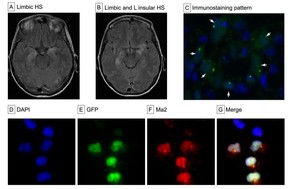How to diagnose and manage....
As the use of cancer immunotherapy with immune checkpoint inhibitors (ICIs) is expanding rapidly for the treatment of many tumor types, it is crucial that both neurologists and oncologists become familiar with the diagnosis and treatment of neurological immune-related adverse events (n-irAEs). These are rare complications, developing in their severe forms in only 1–3% of the patients, but are highly relevant due to their mortality and morbidity burden. The diagnosis of n-irAEs is—however—challenging, as many alternative diagnoses need to be considered in the complex scenario of a patient with advanced cancer developing neurological problems. A tailored diagnostic approach is advisable according to the presentation, clinical history, and known specificities of n-irAEs. Several patterns characterized by distinct clinical, immunological, and prognostic characteristics are beginning to emerge. Herein, we provide an update of the recent advances in the diagnosis and treatment of neurological toxicities related to ICI use, focusing on the exclusion of alternative diagnoses, diagnostic specificities, and treatment of n-irAEs.




